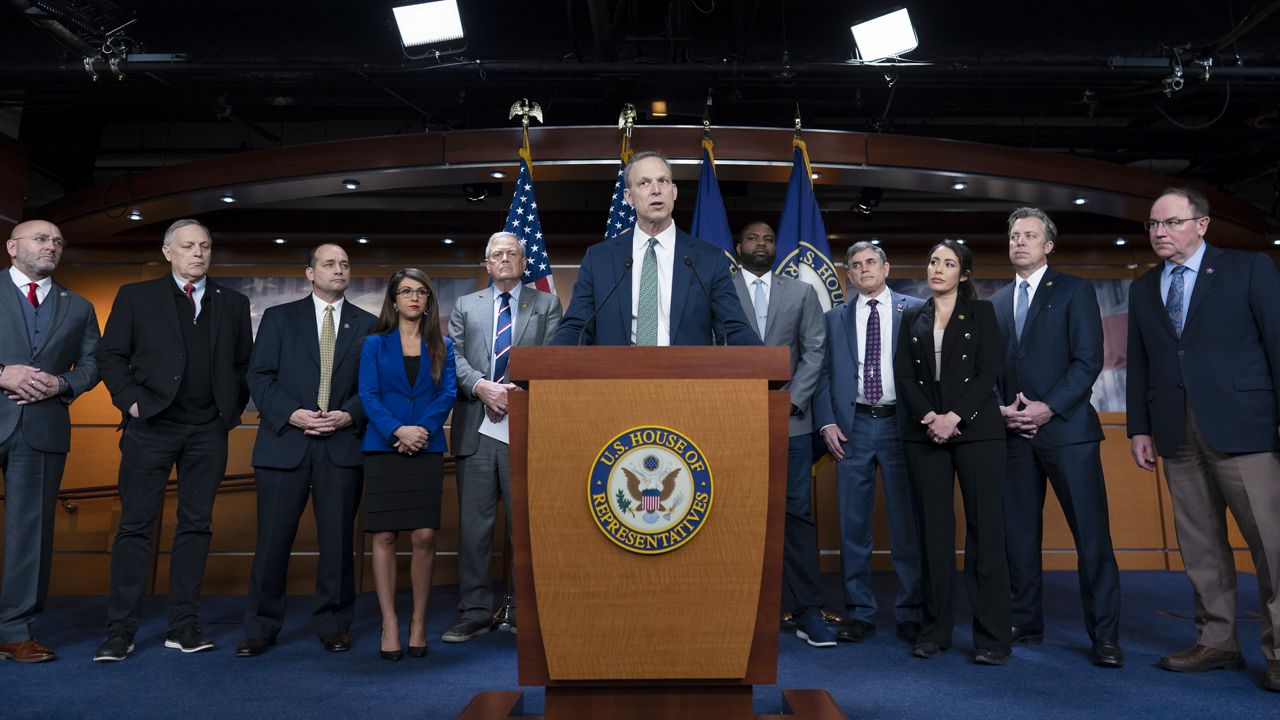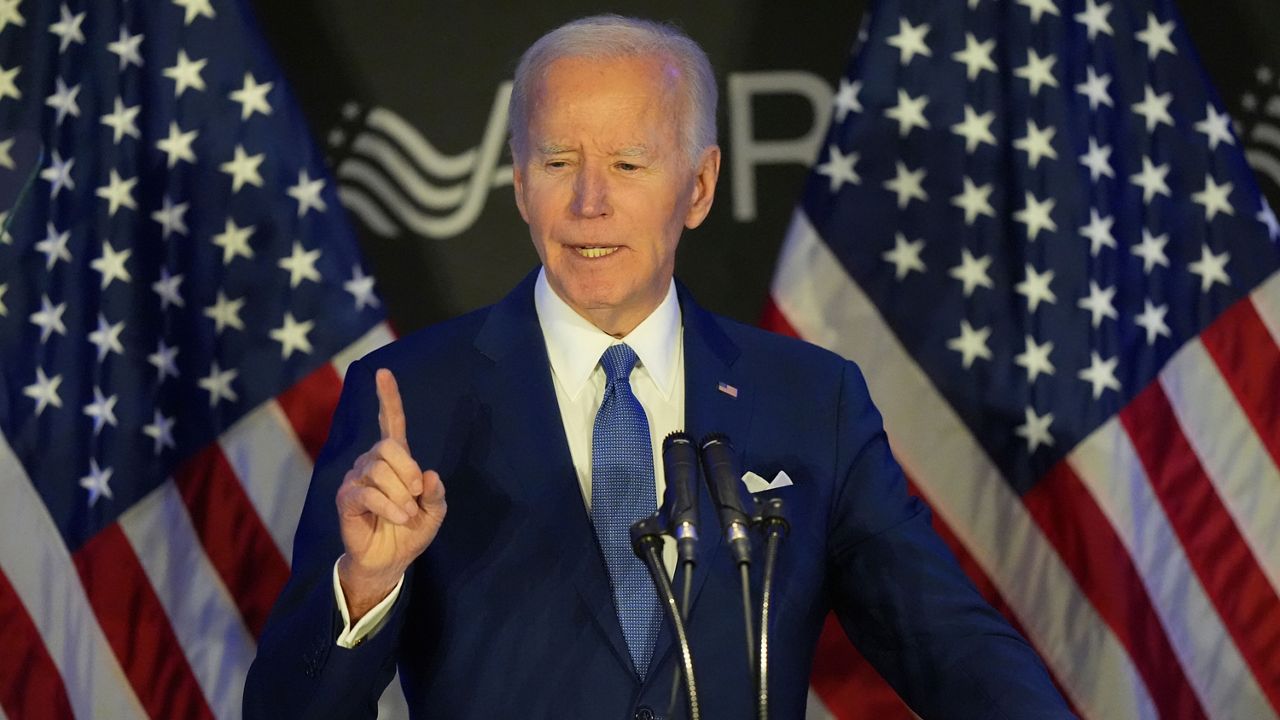Far-right House Republicans on Friday issued a lengthy list of demands Friday in exchange for their vote to raise the debt ceiling.
What You Need To Know
- Far-right House Republicans on Friday issued a lengthy list of demands Friday in exchange for their vote to raise the debt ceiling
- The House Freedom Caucus said it will consider voting to raise the $31.4 trillion debt ceiling if legislation is passed killing President Joe Biden’s plan to forgive up to $20,000 in student loan debt, rescinding all unobligated and unspent COVID-19 relief funds and more
- The Freedom Caucus is also calling to cap future spending at 2022 fiscal year levels for 10 years, but allowing for 1% annual growth
- President Joe Biden quickly dismissed the Freedom Caucus’ demands, some of which seek to undo what he considers his most notable achievements
The House Freedom Caucus said it will consider voting to raise the $31.4 trillion debt ceiling if legislation is passed killing President Joe Biden’s plan to forgive up to $20,000 in student loan debt, rescinding all unobligated and unspent COVID-19 relief funds, repealing $80 billion in new IRS funding and “finding every dollar spent by Democrats that can be reclaimed for the American taxpayer.”
“The point is that this current debt crisis has been created solely by reckless Democrat policies and out-of-control spending,” Rep. Scott Perry, R-Pa., chairman of the Freedom Caucus, said during a news conference Friday at the Capitol. “However, America will not default on our debt unless President Biden chooses to do so.”
The Freedom Caucus is also calling to cap future spending at 2022 fiscal year levels for 10 years, but allowing for 1% annual growth. It claims doing so would save $131 billion in the upcoming fiscal year and $3 trillion over the long term and put the federal government on the path to balance the budget while protecting Social Security and Medicare benefits.
The group of Republicans also is demanding passage of a bill that would require congressional approval of major regulatory rules – such as those that would impact the economy by at least $100 million – put an end to federal regulations and subsidies it says are hamstringing domestic energy production, and restore work requirements for welfare recipients. The caucus wants, too, a preemptive short-term government funding bill that would restore non-defense discretionary spending to 2019, pre-pandemic levels.
“Simply put, the plan is to shrink Washington and grow America,” Perry said.
President Joe Biden quickly dismissed the Freedom Caucus’ demands, some of which seek to undo what he considers his most notable achievements.
“You know what the essence the enactment of the legislation is? Cut all spending other than defense by 25% -- 25% across the board,” he told reporters. “That means cops, firefighters. It means health care.”
White House press secretary Karine Jean-Pierre said in a statement that “extreme MAGA House Republicans showed us what they value: tax breaks for the super wealthy and wasteful spending for special interests.”
She said the Freedom Caucus’ plan would be a “gut-punch” to America’s middle class and would not, when coupled with Republican support for trillions in tax cuts, cut the deficit. Manufacturing jobs would be lost, health care premiums and drug prices would rise, and funding for police and border security would be cut, Jean-Pierre claimed.
The debt limit is the amount of money the U.S. government is authorized to borrow to pay its legal obligations. Treasury Secretary Janet Yellen has warned lawmakers that if they don’t act, the country will run out of money to pay its bills sometime in June.
If Congress fails to raise or suspend the debt limit, the U.S. would default on its loans for the first time in its history, resulting in social security, military pay and other checks not going out and the government and Americans being hit with higher interest rates. A U.S. debt default also could potentially trigger a recession, experts say.
Congress routinely raises or suspends the limit regardless of which party’s president is in the White House, but Republicans have grown more reluctant to do so since Biden took office.
Biden said Republican threats to default on the national debt put the U.S. “very much at risk.” Congress voted three times to raise the debt ceiling under former President Donald Trump.
“I urge our extreme MAGA Republican friends in the Congress to put their threats aside and join me in continuing the progress we built,” the president said.
On Thursday, Biden unveiled his $6.8 trillion budget plan that aims to cut deficits by nearly $3 trillion over 10 years. Part of the plan hinges on raising taxes on wealthy Americans, which is expected to be meet resistance from Republicans.








